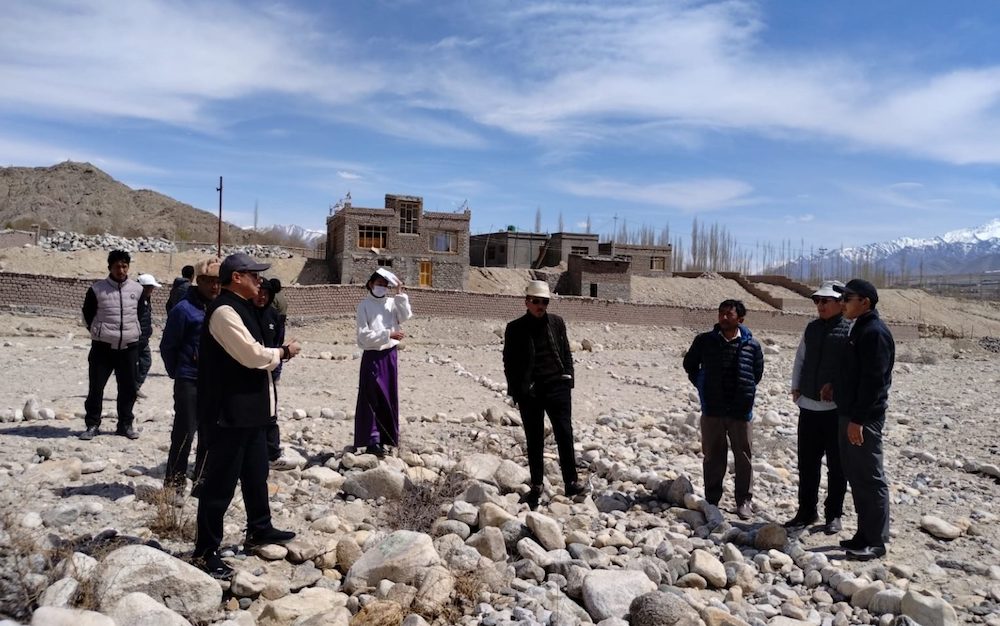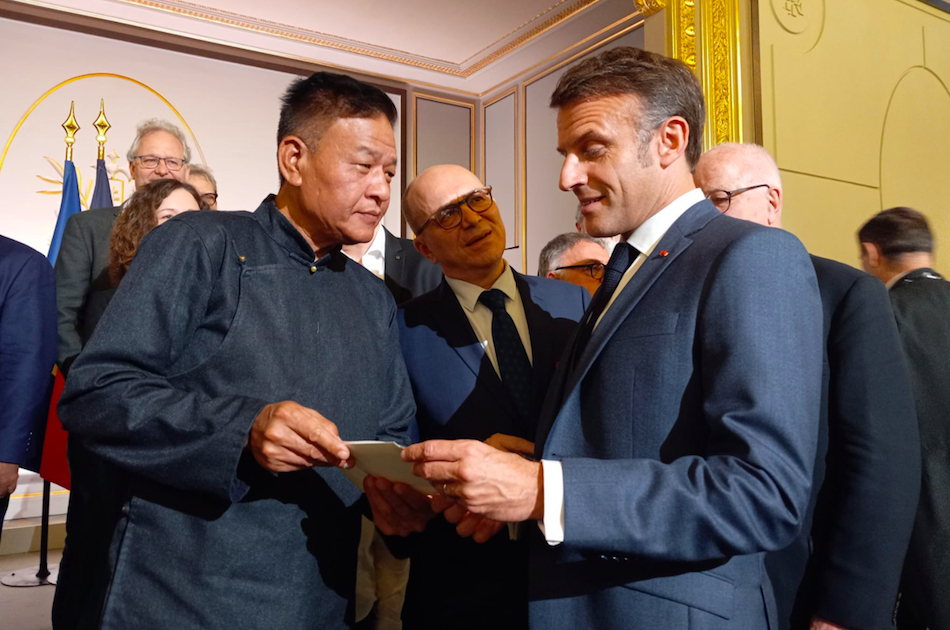A Tibetan refugee with hair down to her feet, Yungchen Lhamo fuses rapturous, traditional vocalizing with a contemporary, global sensibility. On her new album, “Ama” (Realworld/Virgin), Annie Lennox even makes a guest appearance.
I caught up with Lhamo, a devout Buddhist who possesses the enchanting voice of exile, at the Fez Festival of World Sacred Music. A mesmerizing beauty with high cheekbones, Lhamo wore a silk chuba, a traditional Tibetan dress tied at the waist. She will sing in her adopted hometown of New York during Lincoln Center’s Out-of-Doors Festival in August.
Hilferty: Your hair is almost five feet long! How do you take care of it?
Lhamo: I have five assistants and use 100 different kinds of shampoo.
Hilferty: You’re kidding?
Lhamo: I am. Actually, when you have long hair, you don’t have to go to the hairdresser all the time or worry about your hairstyle. That’s one reason I leave it this way.
Hilferty: What’s the other reason?
Lhamo: In Tibet, we had to cut the hair. After I left, I just let my hair go, with no one telling me what to do.
Hilferty: What does your name mean?
Lhamo: In Tibetan, Yungchen means “melody” or “song,” and Lhamo means “goddess.” But I’m not a goddess.
Leaving Home
Hilferty: When did you discover your gift?
Lhamo: When I was very young, and life was very difficult in Tibet, my grandmother asked me what I would like to do when I grow up. I said I wanted to be a man, because men seemed stronger. I thought that way I could help more people, old people.
But my grandmother said, “You don’t have to be a man. If you really want to help people, you must sing.”
Hilferty: Why did you flee Tibet in 1989?
Lhamo: There are no opportunities for most people there. I really wanted to find out why my grandparents and parents had so much faith in the Dalai Lama. I wanted to find out what freedom really means.
Hilferty: So you crossed the Himalayas?
Lhamo: It wasn’t fun. It took a month.
Hilferty: Did you finally meet the Dalai Lama?
Lhamo: It was very special because, for me, he’s a spiritual leader, not a celebrity. We received a blessing from him.
Melancholy Prayer
Hilferty: Your new album is called “Ama.”
Lhamo: It means “mother.” My mother became a single mom, and it’s not easy raising six kids in a labor camp. But she always gave us love. I haven’t seen her since I left Tibet, so I dedicate this CD to her.
Hilferty: You have a song on the new album called “9/11,” a melancholy prayer with a tinge of hope. Were you in New York for that catastrophe?
Lhamo: Yes. I believe human beings have become monsters. This happened in a place where we think we are powerful. We cried. But my grandmother always said, “Revenge is not good.”
Hilferty: You also worked with Annie Lennox for the more upbeat “Fade Away.” How was that?
Lhamo: This was technology. I wrote a song that I sent to Annie by magic machine. She added her track and sent it back. I think it worked so well because we understood each other.
Hilferty: What do you do in your spare time?
Lhamo: I have the Yungchen Lhamo Foundation. This year’s project is to provide children with shoes. There’s also a film in the works called “The Streets of Dharamsala,” which will be shot this July in India. It will show the difficulties facing young Tibetan people in Dharamsala, where the Dalai Lama lives.
Yungchen Lhamo will perform during Lincoln Center’s Out-of- Doors series on Aug. 26, 29 and 30. For information about Yungchen Lhamo, her foundation and performance schedule, see http://www.yungchenlhamo.com .
(Robert Hilferty is a critic for Bloomberg News. The opinions expressed are his own.)









